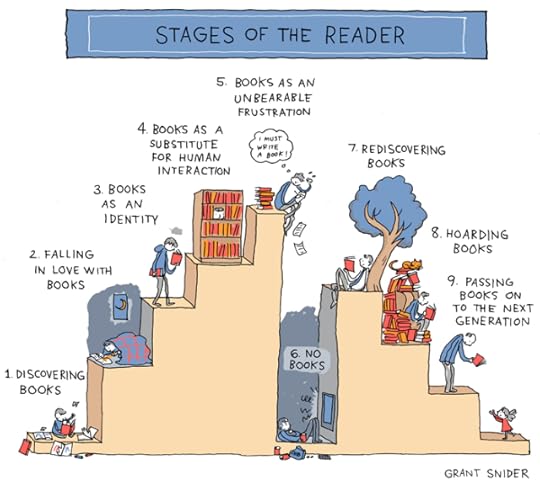L.M. Nelson's Blog, page 28
May 18, 2017
Writing While Deliriously Tired
Overcome Your Writer’s Block: Key Strategies On Pushing Past Your Mental Brick Wall
Writers block can be detrimental to a writer. Here are some tips to help overcome your block.
Writing can be a difficult and trying task even for the most seasoned of writers. At some point or another it’s inevitable that you’ll “hit the wall” and suffer from the dreaded curse of writer’s block. However, there’s no reason that your bout with writer’s block should spell disaster because there are some strategies that can help you push past that wall and allow those creative juices to start flowing freely again. Here’s some things to help get you started.
1) Don’t Stress It
The first strategy is not to let writers block stress you out. Yes, your deadline may be quickly approaching, but stressing and panicking about it certainly won’t help. In fact, if you let the stress consume you then you’ll find it even harder to push past this wall and get back to writing. Stress only serves to make the mental brick wall even harder to break…
View original post 779 more words


May 14, 2017
Let’s Talk: Grit as a Writer
Commit and persevere. Great article by my amazing formatter and cover designer.
Grit. This word keeps popping up all around me lately. The idea has been around a looooong time, but for some reason grit has become the little bell dinging in my ear like a wake up alarm.
What is grit? Well, Merriam-Webster says:
: firmness of mind or spirit : unyielding courage in the face of hardship or danger
Or dictionary.com
firmnessofcharacter;indomitablespirit;pluck:
Here’s what Angela Lee Duckworth has to say about grit:
Have you ever bought a car and suddenly you see the same exact car everywhere? Well, grit is like that car. It piqued my interest one day, and now I keep hearing it and seeing it everywhere.
Grit, in my mind, is a component of perseverance, defined at dictionary.com:
steadypersistenceinacourseofaction,apurpose,astate,etc.,especiallyinspiteofdifficulties,obstacles,ordiscouragement.
Do we have…
View original post 911 more words


May 9, 2017
Wimberley Book Festival
[image error]
I will be signing books and talking about the Scrubs series at the Wimberley Book Festival June 10th. If you stop by, you can also get a sneak peek into the new project I’m working on.


Writer’s Block
May 6, 2017
Sticky Notes and Sketches
Two things I’ve learned since beginning my new writing project:
1. Plotting out a fantasy book hurts my head.
2. I can’t draw.


Mastering Character Development
Character development is the most important part of fiction writing, yet the hardest to master. This article explains why.
by Meg Dowell On a page, you are in control of time. Outside of it, you aren’t. I have read and experienced many fascinating stories in my lifetime. I have also experienced many poorly executed stories. The deal breaker for me are a story’s characters. If, by the climax of a story, I do not care […]
via This is Why Character Development Takes So Long to Master — A Writer’s Path


Stages of the Reader
What stage are you on? I’m about to escape stage number five – my first book will be published on Tuesday!You can find it via Abrams Books, on Amazon, or wherever books are sold.Posters are available at my shop.
via Stages of the Reader — INCIDENTAL COMICS


May 5, 2017
Color Meanings for Writers
Insightful information about colors.
Using colors in your writing is a fantastic way to add symbolism and foreshadowing to your story. They can enrich your scenes by adding deeper meaning, variation, and help with mood amongst other things. Be sure to check out the upcoming post on using the five senses next Monday! This chart is a little gift for the “Sight” portion of it.
I hope you find it as useful as I do! 
May 4, 2017
Ten Tips For Creating the Perfect Pace in Your Novel
[image error]Sometimes as writers, it’s hard to create the perfect pace in our stories. I attended a writing workshop recently and learned a few things about pacing. Here’s what I walked away with.
Impose a deadline. Your characters must have an urgency and a time constraint to accomplish their task. Give them a timeframe.
Up the ante. Make the task harder, danger greater, or stakes higher. Challenge your character, create tension and throw things at them that get in the way.
Create a mystery. Leave open questions. Create doubt and uncertainty. Why was he here? What was he doing with that person?
Swap point of view. Change the voice. Alter from heavy to humorous.
Leave white space. Keep paragraphs short. Vary sentence length. Create chunks.
Create an unsettled feeling. End chapters by leaving readers on edge. Make them want to know what’s going to happen next.
Interlock episodes. Every scene connects to the other. Dive into important stuff and make each scene action or emotion related. Description and action must flow. Don’t write a scene readers will skip. If it’s not important, don’t include it.
Introspection. Put your reader into the thick of your character’s emotions. Climb inside the character’s head and pull the reader in with you.
Punctuation power. Make punctuation pull the flow of the story. Dashes quicken the pace, semicolons slow the reader down.
Ignore the noise. Make the writing yours and be your own voice. Don’t compare yourself to others. Be true to your own stories.













